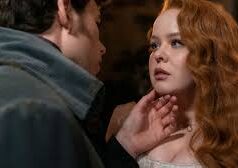Like the movie, the flat serves as the focal point of Love Life, Koji Fukada’s contemplative exploration of loss and displacement. The living room’s focal point is a large table flanked by many chairs, a small bench, and other furniture. In recess, there is a kitchen. A bathroom with a small tub, a basin, and a toilet is located next to the door. There are sliding doors leading to a balcony in the back that looks out over an ugly concrete lot, and a bedroom is on the right. There are several indications of family life, including height markings scratched into walls, awards, certificates, a child’s drawings, books, clothing hung up to dry, and shoes tucked away in a corner.
The song of the same name by Japanese jazz and pop vocalist Akiko Yano served as the inspiration for Love Life. While Fukada heard the song when he was 20 years old, he was reportedly considering how to create a filmic translation. Grand declarations are the focus of the 1993 song; she sings, “Whatever the distance between us, nothing can stop me loving you,” at one point. The promise is put to the test in Fukada’s film, which examines it beyond romantic love and applies it to relationships between lovers—both present and past—as well as mothers and their children.
However, there are instances when Love Life’s storyline seems too abrupt and blatant, and Fukada uses practical, somewhat kitschy shortcuts to move the plot forward. And while it’s possible that they are meant to be random reflections of life, they really interfere with Love Life and break Fukada’s otherwise spellbinding spell.







